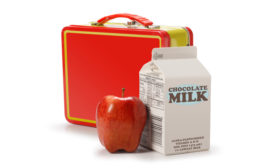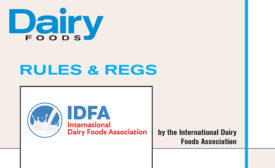Joseph Scimeca
Joseph Scimeca, Ph.D., is senior vice president, regulatory and scientific affairs, for the International Dairy Foods Association.
ARTICLES
Three-in-four WIC participants are concerned with the USDA proposal, Morning Consult survey reveals.
Read More
IDFA: FDA’s proposed “healthy” rule falls short
FDA’s proposed “healthy” rule begins to embrace dairy, but many healthy dairy products are excluded.
December 13, 2022
Keep dairy a core part of school meals
IDFA is urging USDA to ensure permanent nutrient standards encourage dairy consumption.
April 20, 2022
Will new leadership at FDA open the door to innovation in dairy?
Now is the time to establish greater transparency, accountability and collaboration.
January 14, 2022
FDA’s sodium-reduction guidance targets cheese
More reductions are likely to come.
November 19, 2021
Back to school with low-fat flavored milk
It’s time for the USDA to implement a permanent rule allowing the nutritious product as an option in schools.
May 13, 2021
Bioengineered disclosure compliance deadline is approaching
Starting on Jan. 1, 2022, all retail food and beverage packaging, including dairy products, must comply with the National Bioengineered Food Disclosure Standard rule.
January 25, 2021
Here come the new Dietary Guidelines for Americans
It is important to ensure dairy continues to have a strong role in the DGAs.
December 1, 2020
COVID-19 and crisis planning: a learning experience
For the dairy segment, crisis management is about more than just keeping retail grocery shelves stocked.
May 11, 2020
Get our new eMagazine delivered to your inbox every month.
Stay in the know on the latest dairy industry trends.
SUBSCRIBE TODAYCopyright ©2024. All Rights Reserved BNP Media.
Design, CMS, Hosting & Web Development :: ePublishing





